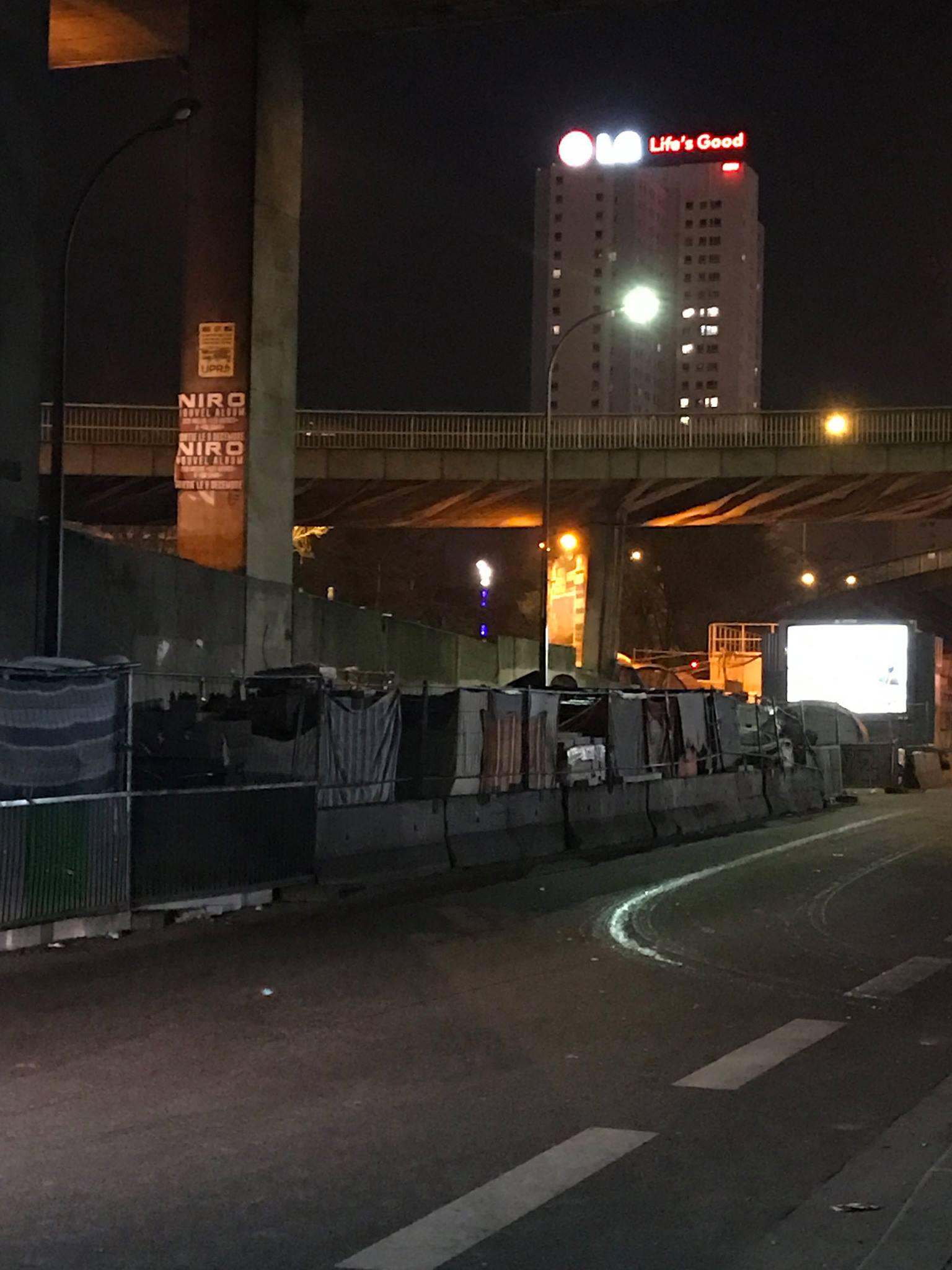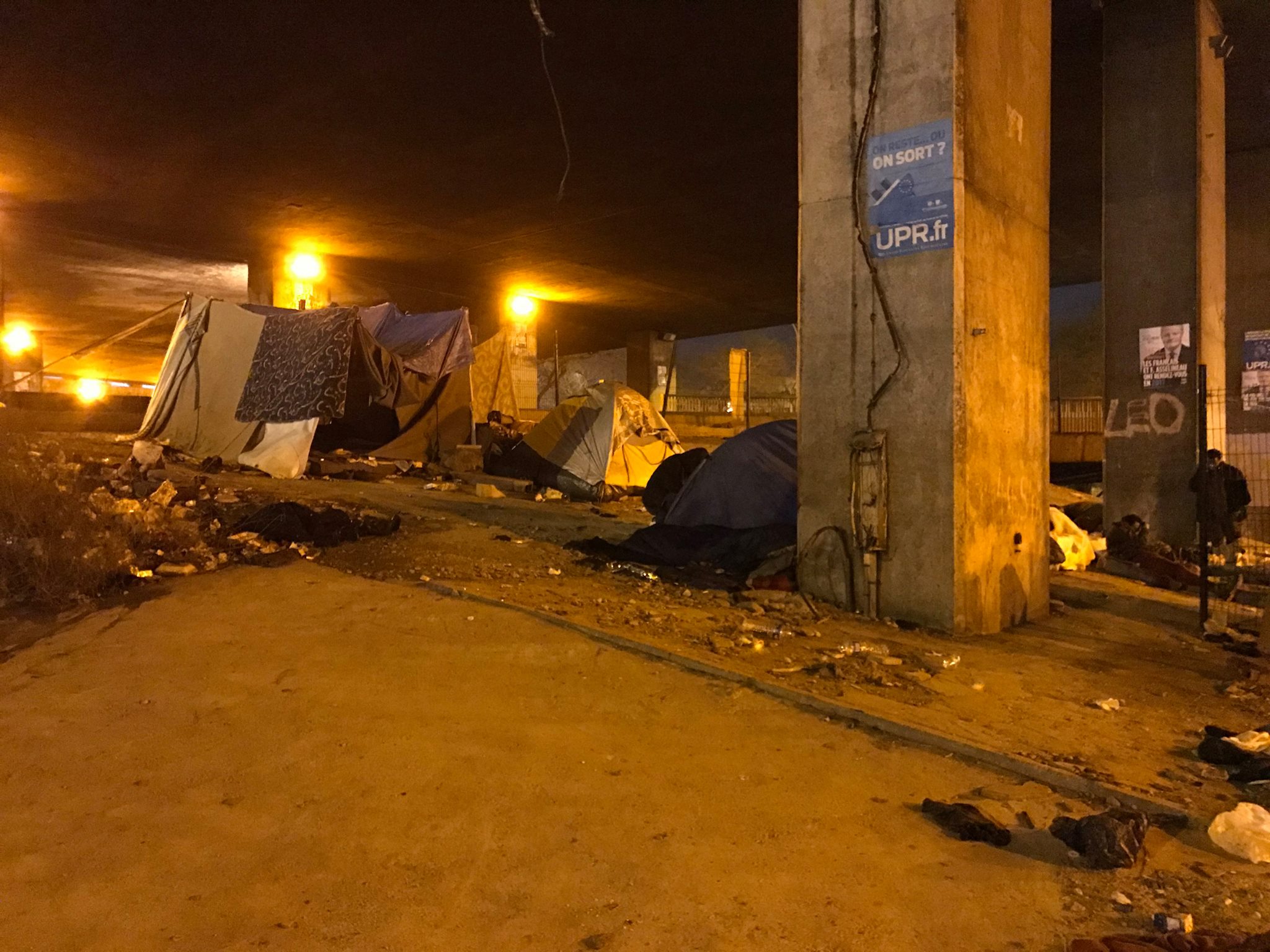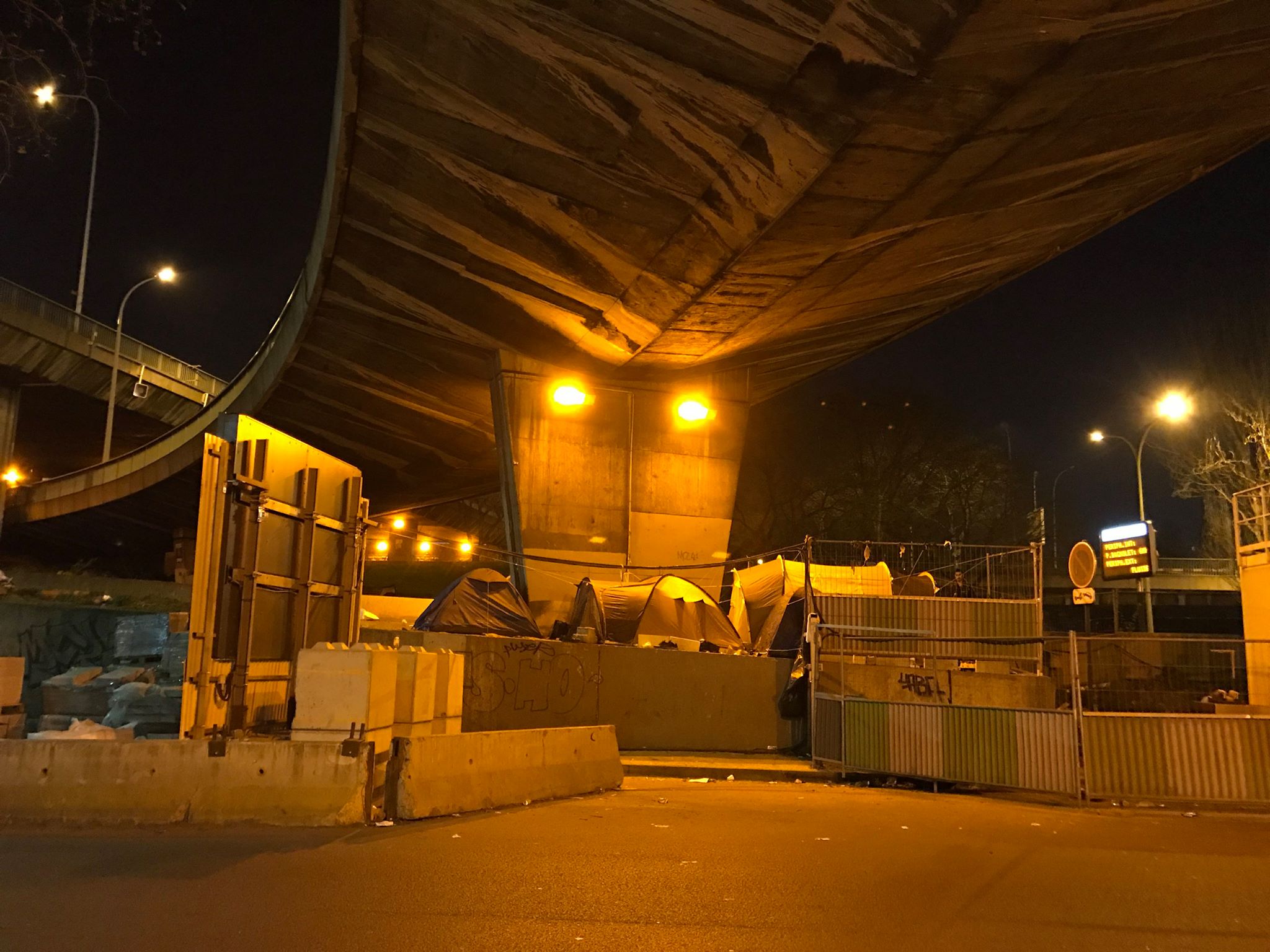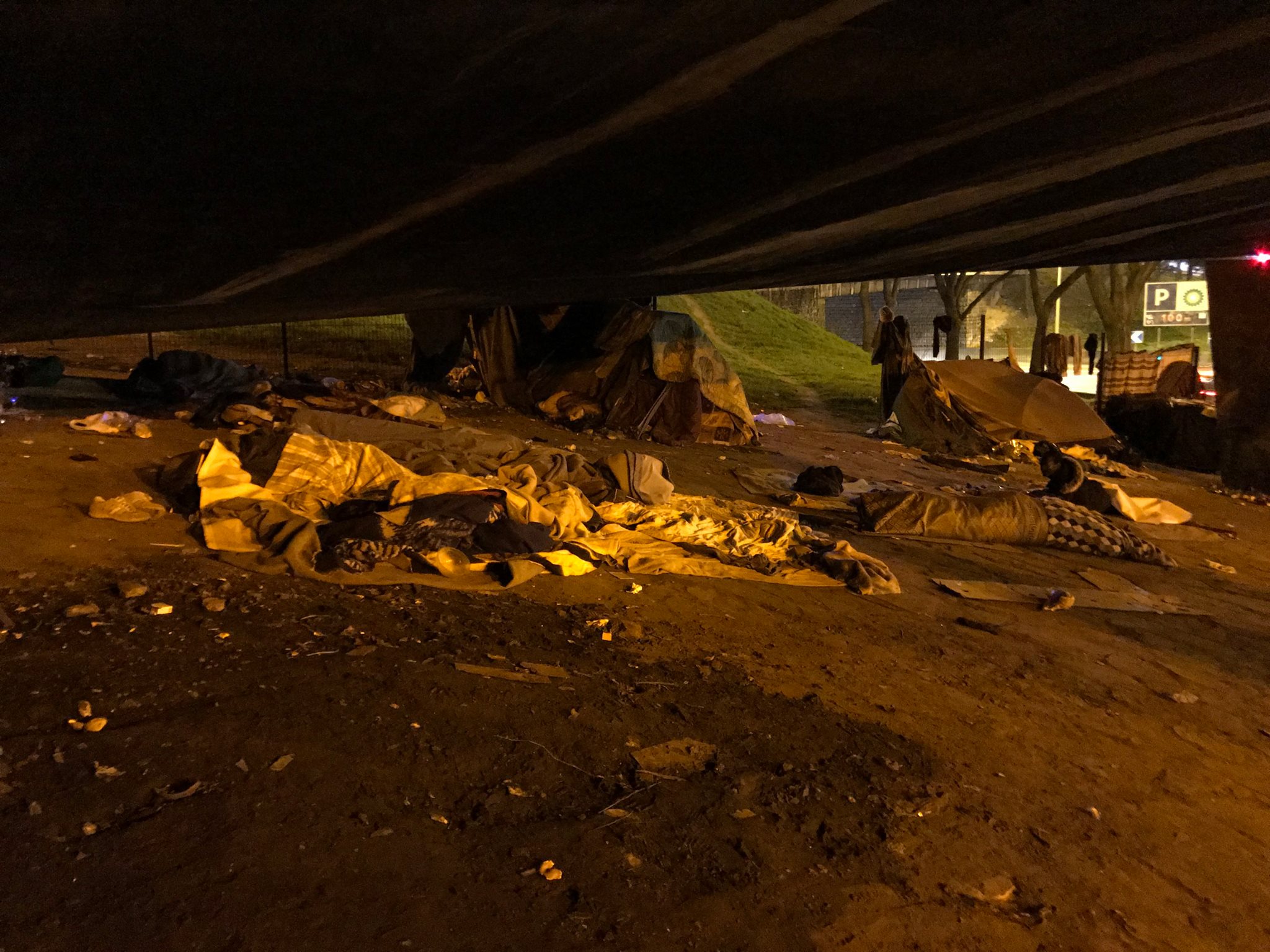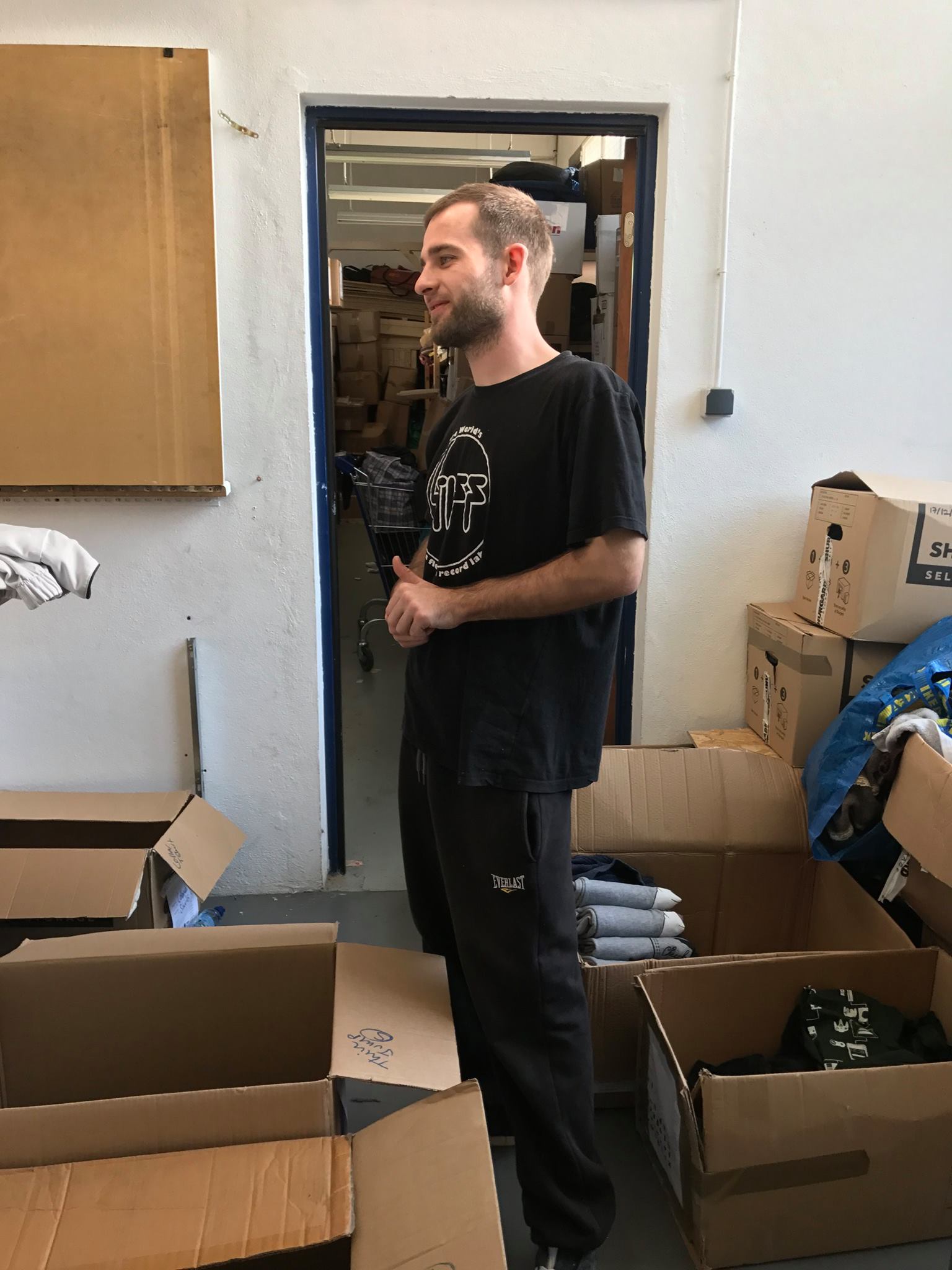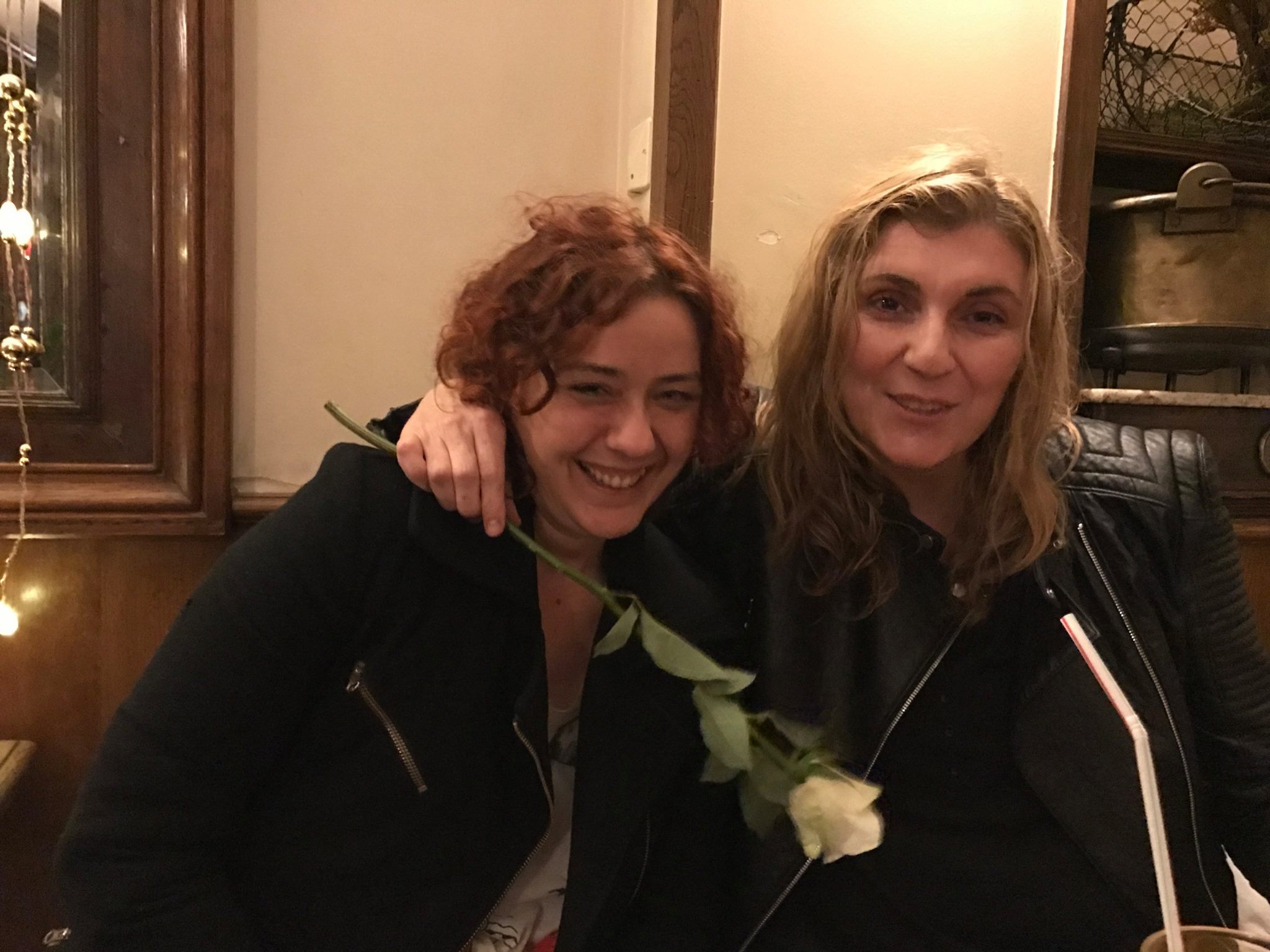Mar 27, 2017 at 12:40 pm
Paris
Update posted by Sam Mitchell“It is fatal to look hungry. It makes people want to kick you.”
The words of George Orwell came to mind everywhere we went during my time in the French capital - sometimes we had to pinch ourselves to remember that this was Paris, 2017.The plight of refugees in the city has been constantly over-shadowed by the media spotlight that was shone on Calais. But the streets of the northern banlieus are filled with stories of deprivation, hardship, violence and hope. And, of course, small grassroots groups battling against the odds to try and make things a little better.
We spent four days in the city with Paris Ground Support, a small street outreach group that has been feeding and clothing refugees on the streets of Port de la Chapelle from midnight until dawn for the last six months. Aside from the two people who PGS is made up of - Heather and Kelvin - the most valuable asset they have is their van, which allows them to roam around and distribute clothing, tents, sleeping bags and food to those in need. Unfortunately, some days before we arrived, their van had broken down and was being repaired. Our first days in Paris were spent sorting clothes in the PSG warehouse while Kelvin and Heather filled us in on what life is like for many refugees in the city.
In the summer, a huge unofficial camp formed in Port de la Chapelle where hundreds of men, women and children lived in appalling conditions. The municipality did not want these scenes of human suffering inside the city limits and the camp was violently dispersed. But these people had nowhere to go and were forced to form communities on the streets outside and on the borders of the periferique (the ring road around Paris). The closure of the camp in Calais further swelled the numbers of people living on the streets and every day new arrivals from boats in Italy and towns and cities elsewhere in Europe mean that there is always work to be done here.
Because the powers that be in Paris don’t want another unofficial camp forming, small impermanent sites pop up all over the Saint-Ouen neighbourhood, self-segregated into different nationalities. However, these don’t last for long as every night the infamous CRS are out in force and when they find a ‘camp’ they move in, beating refugees whilst they sleep and scattering the few possessions that they have. It’s hard to understand how the authorities can just accept people living in conditions like this - but it isn’t just refugees. Many of these sites are close to an informal Roma camp where conditions seemed only marginally better. And this site has been here for a long time.
We went out one night on a food distribution to see for ourselves what life is like for refugees on the streets in Paris. Outside of slums in Africa and India, I’ve never seen people forced to live in the manner they do in Paris. Men and teenage boys are forced to scavenge for rubbish and plastic to build some kind of shelter. They sleep in the under passes of motorways, with no shelter, no access to water and no toilets. Tents and sleeping bags are distributed under the cover of darkness as to do so in daytime risks drawing the attention of the CRS who then violently force them from the meagre places they have made to sleep. We met cheerful Afghans who had somehow managed to build a yurt out of plastic and discarded fabric. We gave food to Eritreans who were forced to sleep on concrete soaked in piss. And we were offered oranges and seats by a group of cheerful Sudanese men and boys, who had no blankets or sleeping bags at all. The only thing they possessed was a sense of humour and friendliness and a keen sense of irony about the fact they were forced to sleep out under the stars and a “Life is Good” advertising billboard.
All of the men we met were at different stages of the asylum process. Many wanted to stay in France. Some wanted to come to England because they had family there or they spoke the language. A few were ex-residents of Calais, who had nowhere else to go.
And then of course within the hour we had met our first minor, a 16 year old Sudanese boy who didn’t know where to go or who to ask for help. Many of the activists and volunteers we spoke to said that the numbers of lone children on the streets of Paris had grown exponentially since the closure of Calais. Many of these children have the right to come to the UK under Dublin III (family reunification) and others were eligible under the Dubs amendment. Right before the closure of Calais, the British government promised that if these children were moved to centres all over France, their claims would be processed there. Of course, this hasn’t happened and Dubs has been closed down, even though local councils in the UK say there are many more places open for refugee children over and above the 350 that are already scattered across the country. And so the children come back to Paris and Calais and try to survive on the streets and risk their lives jumping onto the back of lorries to get to the UK.
It’s hard not to feel angry when you compare the beds that English MPs get into every night, safe and warm in their houses (many paid for by the tax-payer) with the bit of cardboard the 16 year old Sudanese boy slept on that cold night in Paris.
Everyone had told me that Paris was ‘different’; different problems, different rules, different challenges, different ways of operating. This is all true - volunteers and organisations looking to help should not rush in thinking that their months of work and experience in Greece has much relevance here. It’s a different way of operating - good work can still be done, but it’s so important to speak to teams already here about how to help. There is commonality though - there is simply no need for human beings to live like this. There is the money there to help them. It’s political will, or lack thereof, that means that people have to endure these hardships. And it’s always volunteers working the frontline to ensure that basic needs of refugees are met.
We take our hats off to all the people that have been working with refugees in Paris, particularly those who do street outreach. We met some of the most dedicated, hard-working and sleep deprived volunteers we have come across in all our time being involved in this refugee crisis. The deprivation in Paris is heartbreaking and the street is hard - police and gangsters make it incredibly difficult to operate safely. And for once, Paris isn’t sexy. The city gets little coverage in the media for refugee issues and the projects here deserve more support. If you want to help, we can recommend contacting the following people/organisations - this list is not exhaustive and many more good groups operate in the city, we just didn’t get a chance to meet them all.
Help Refugees funds many projects in Paris, as well as elsewhere in France
Paris Refugee Ground Support is fantastic but is about to have a well earned and much overdue hiatus. Watch their FB page for future posts about what they are doing next.
Solidarithe - This is a great organisation doing street outreach and providing refugees with vital information about their legal rights and services that can be accessed in Paris.
Utopia 56 does invaluable work with refugees in northern Paris and with minors.
The incredible Danika has been in Paris for many years and she and her team help out in any and every way you can imagine.
We left Paris for Italy a few days ago. Before we hit the road, we made a donation to PGS to spend on giving them and some refugees on the street a bit of a break from the daily grind. We also gave money to a Syrian mother and her child who were on the streets.
Please consider donating to our crowdfunder to help us support great projects we find in Italy and beyond.
Thanks for all your support so far 
